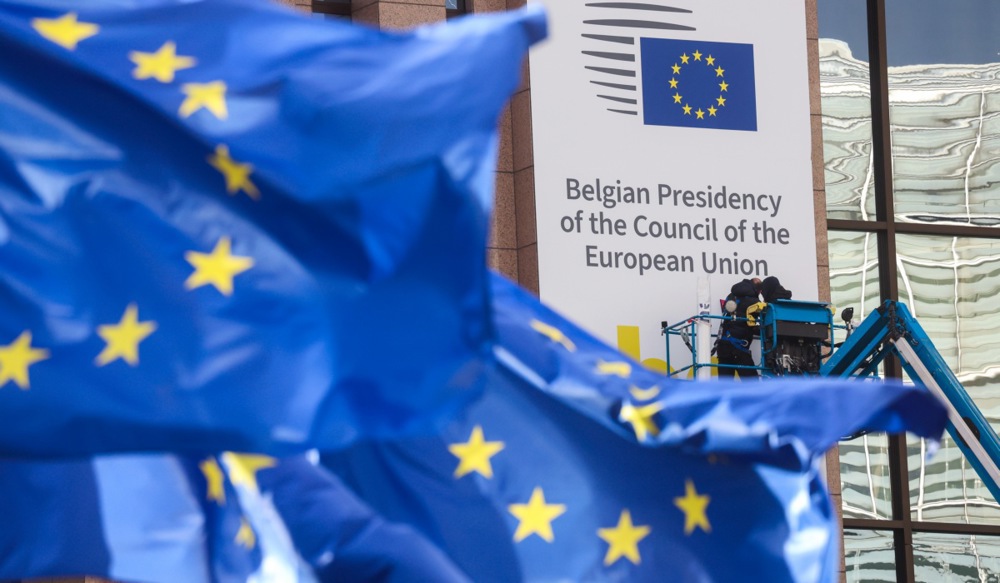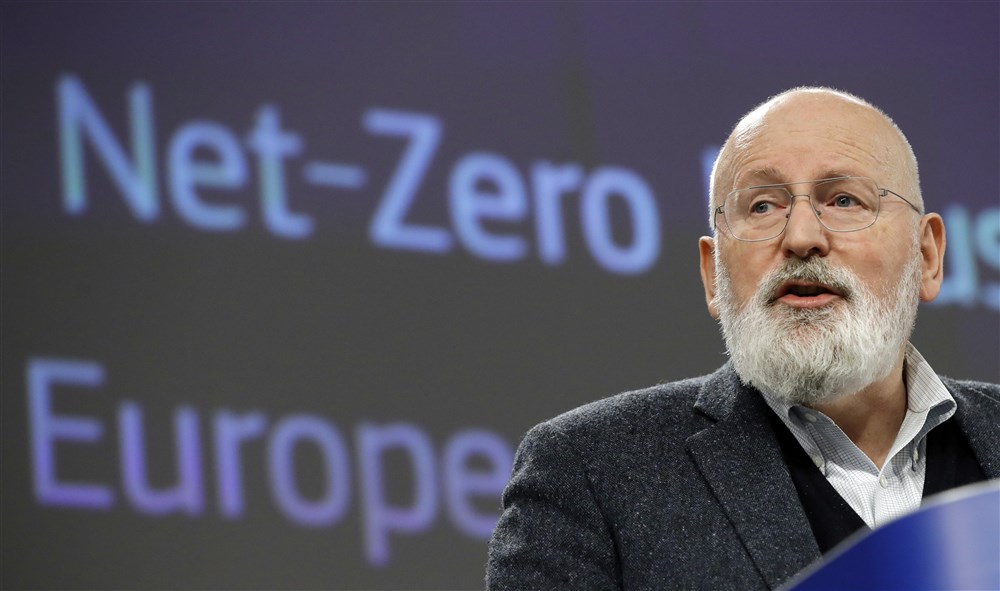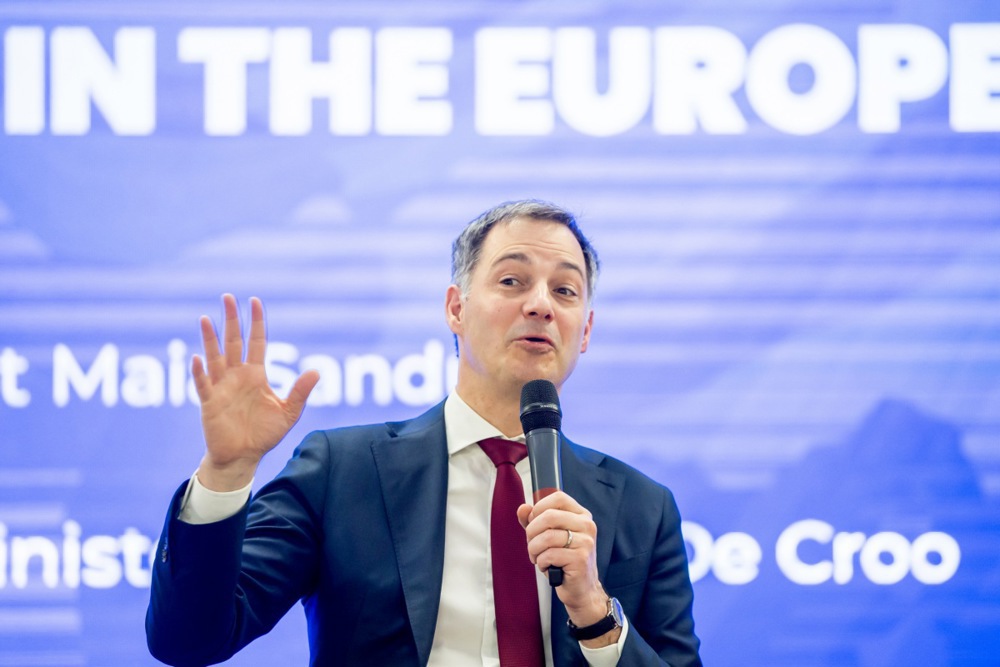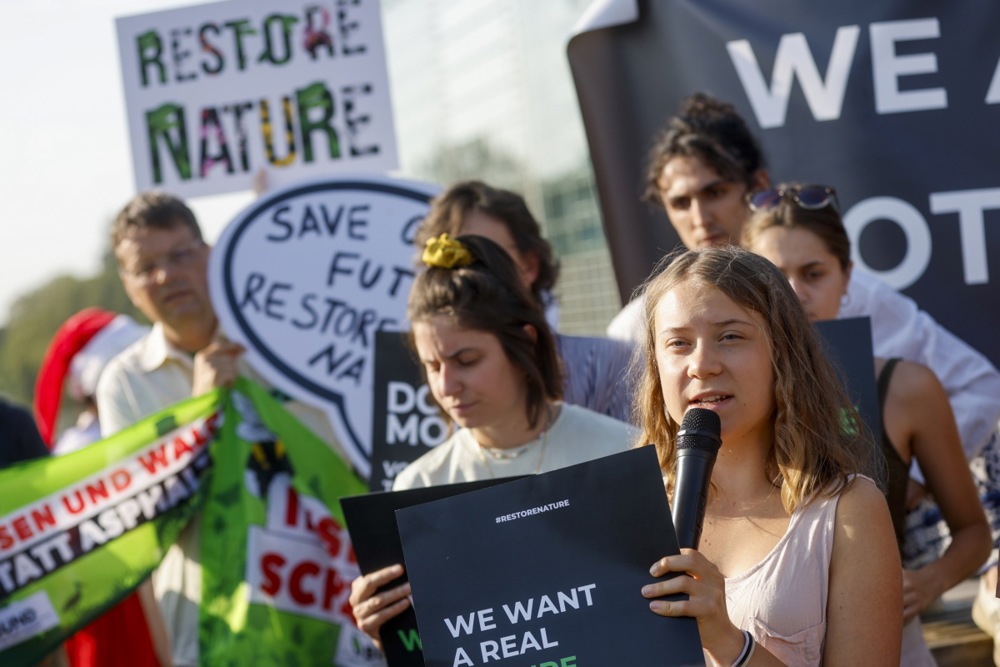Belgian Prime Minister Alexander De Croo, whose country holds the Council of the EU’s rotating six-month presidency, is pushing for an EU ban on imports of products from Israeli-occupied territories.
The move would block agricultural products like dates, olive oil, and wine from the Occupied Territories from entering the EU.
Speaking to Radio 1, the Belgian PM said, “I think it’s difficult to say, in the current circumstances, that trade with Israel —especially concerning products coming from occupied territories— where the violence is increasing, and it’s not only in Gaza where the safety conditions are dramatic, that we as European countries can pretend that there is nothing wrong.
“Belgium alone would have zero influence, but for weeks now, we have been reaching out to other European countries to look for a big group of countries willing to make that step,” he added.
De Croo said a few countries are already very sympathetic towards such a boycott, and he wants to convince others to join.
The Belgian PM referred to the recent past, in which Belgium was one of the first countries to argue for an entry ban for violent Israeli settlers.
“Now the US is also defending that position,” he said.
He described Belgium as a pioneer country changing the minds of other countries, not by speaking about world problems, but by trying to persuade others to change their actions.
An Israeli attack on Rafa could have “disastrous consequences” for the Palestinians, and also would affect people in Belgium, De Croo warned.
“We see it in our universities”, adding he “absolutely understands” those emotions.
“If I were a student today, there would be a good chance that I would also voice my protest.”
He emphasised the importance of refraining from violence, vandalism, or hatred, while also stressing the necessity of engaging in dialogue about the situation in Gaza.
At the University of Gent, activists from Gent Students for Palestine started a three-day occupation of a university building, in solidarity with Palestinians.
Hundreds of sympathisers, including University professors and staff, signed an open letter in support of the occupation.
Our students @ugent have now started their occupation to cut ties with Israeli universities (and at least respect the decision of our own commission for human rights who put forward proposals for cutting ties). They have support from many within administration and faculty. https://t.co/i7nGt9Hve4 pic.twitter.com/PunXXj6M9D
— Gillian Mathys (@GMathys) May 6, 2024
Europe has an association treaty with Israel which includes conditions on human rights, De Croo told Belgian newspaper Het Laatste Nieuws.
He asked Josep Borell, the High Representative of the Union for Foreign Affairs and Security Policy, to look into these aspects of the treaty.
De Croo admitted he would not have expressed this viewpoint two months ago.
“But in the meantime, there have been 35,000 deaths, including 10,000 children. And while it’s not the main reason, we Europeans will bear the consequences. Within ten years, they will say, ‘You watched and took no action.”
The risk of escalation is already unfolding, with attacks on ships in the Red Sea and Iran launching hundreds missiles and drones toward Israel, he said.
The Belgian PM said his government had tried to impose sanctions on Israeli settlers, but had not succeeded.
Belgium is one of Israel’s biggest trading partners in the EU, with the diamond trade playing a large role.
On Friday, Turkey suspended all trade with Israel, because of the “worsening humanitarian tragedy” in Gaza.
The Spanish Government is making its support of Palestine known ahead of the European Parliament elections with Prime Minister Pedro Sánchez telling journalists his country plans to officially recognise the State of Palestine “before the summer”. https://t.co/UPD6HgpWkB
— Brussels Signal (@brusselssignal) April 2, 2024





